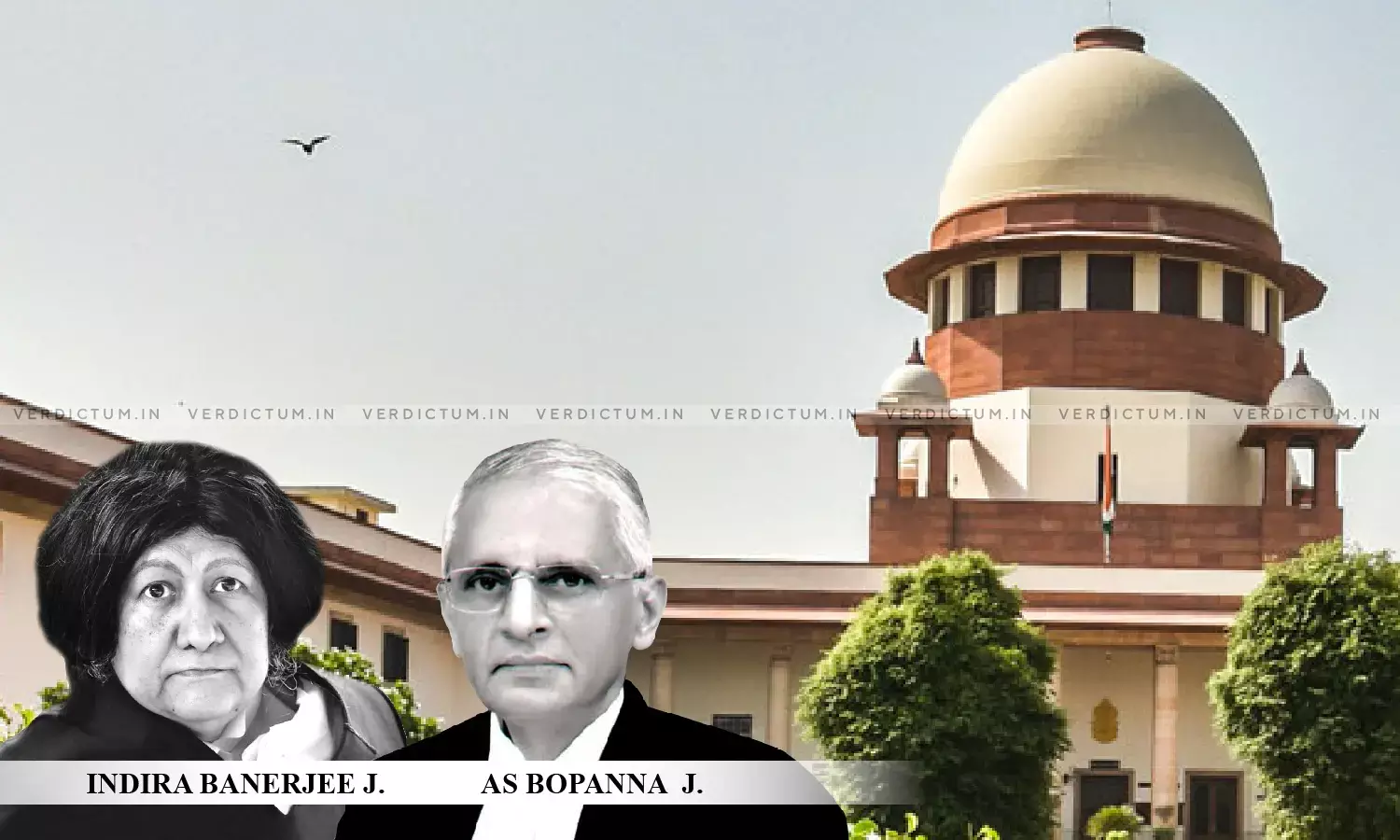Courts Cannot Sit As Medical Experts And Reassess Opinion Given By Medical Board - SC Upholds Promotion Of Army Officer

A two-judge bench of Justice Indira Banerjee and Justice AS Bopanna has held up the decision of the Armed Forces Tribunal (AFT) regarding implementation of the promotion of an Army Officer to Additional Major General in the Judge Advocate General's (JAG) Branch.
In this context, the Bench held that a Court cannot sit as a medical expert and reassess the medical opinion rendered by the medical board.
The Court opined -
"When the opinion has been tendered by competent medical experts, merely because the Military Secretary is not satisfied with the same will not entail either When the opinion has been tendered by the competent medical experts, merely because the Military is not satisfied with the same will not entail either."
In this case, the Respondent was a Deputy Judge Advocate General being entitled to the rank of Major General and was recommended for the promotion by the Selection Board. Medical Examination revealed that the respondent had hypertension. The Chief of Defense had cleared the respondent for promotion, considering all aspects, including his medical condition. Further, the promotion was also cleared by the competent authority and subsequently, the Central Government.
However, the Military Secretary had put forth an objection that led to the promotion not being accorded. The Respondent approached the AFT seeking relief. Upon examining the matter, the AFT had approved the grant of promotion to the respondent.
Union of India & Ors. (Appellants) approached the Supreme Court challenging the order of the AFT.
The issue which was dealt with by the Court was -
Whether the Order of AFT approving the promotion of the Respondent despite his Medical Condition is appropriate?
Ms. Madhavi Divan, learned Additional Solicitor General (ASG) appearing on behalf of the Appellant, contended that the Respondent being diagnosed with hypertension was unfit for working at an altitude of 900 ft and above. The respondent's medical condition would, in such a case, become an impediment in carrying out his duty effectively.
On the other hand, it is the case of the Appellant that in the Indian Army an individual is promoted subject to medical fitness. Even if selected, the promotion would be valid only if the medical criteria is satisfied. In the present case, the medical condition of the Respondent was duly assessed and approved by the Selection Board.
Mr. Devadatt Kamat, learned senior counsel appearing on behalf of the Respondent argued that Regulation 67(b)(ii)(aa) of the Defense Service Regulations for the Army, does not bar an individual from being considered for a promotion solely on the basis of one's medical condition. If a candidate meets other criteria, it is up to the Selection Board to come to a decision.
Making a note of the aforementioned contentions, the Court held that – Regulation 67(b) establishes that an officer can be considered for promotion provided the Medical Board finds such an officer to be capable of performing the duties assigned. In the case, the Respondent was duly examined and cleared by the Medical Board.
The Bench also noted that -
"In the instant case, the respondent is the JAG officer and even if promoted would generally perform his duties in the headquarters. It cannot be disputed that as contended by the learned ASG the services may require him to occasionally go to high altitude areas"
In conclusion, the Bench held that it would not be justified for the Military Secretary to raise any objection, in lieu of the Brigadier's Promotion being cleared by the Medical Board, the Selection Board, and the Chief of Defense of Staff.
The Appeal was dismissed with the order of the AFT being upheld.
Click here to read/download the Judgment

